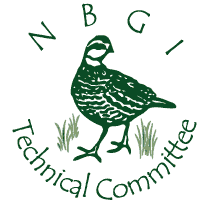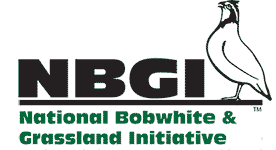… transformational new chapter in the history of bobwhite conservation
With the approval and assistance of the U.S. Fish & Wildlife Service, participating states and the University of Tennessee, the National Bobwhite Conservation Initiative (NBCI) is now eligible for and receiving financial support from states through the Federal Aid in Wildlife Restoration Program, commonly referred to as “Pittman-Robertson.”
A unified, habitat-based 25-state endeavor, NBCI was already the most comprehensive interstate effort on behalf of a resident game bird in the history of wildlife management, as well as a model for regional conservation initiatives for other state trust species.
“Pittman-Robertson funding not only substantially increases the financial support to do what we’ve said from the beginning needed to done, it also stabilizes that support so we can concentrate more intensely on actually getting the priority work done,” said NBCI Director Don McKenzie. “Just as importantly, Pittman-Robertson funding by the states is a compelling testament to the increasing commitment to tackle this difficult bobwhite conservation issue. This is a transformational new chapter in the history of bobwhite conservation.”
With technical guidance of the National Bobwhite Technical Committee, which represents the state wildlife management agencies and their partners, and the policy guidance of the director-level wildlife agency representation of the NBCI Management Board, NBCI addresses opportunities and barriers to bobwhite restoration at regional and national levels.
Among NBCI’s priorities are reconnecting forests with bobwhites through aggressive, purposeful forest management practices first on public and then private lands, returning native grasses to agricultural landscapes, especially in pasture operations, and providing a centralized national data warehouse on habitat management activities, and bobwhite and grassland songbird population response to those activities.
NBCI’s most recent development is the NBCI Coordinated Implementation Program (CIP), designed to achieve a consistent approach in the development of bobwhite focal areas and standardize the monitoring and measures of response by bobwhites and other grassland birds.
“It’s the first methodically designed guidance to help managers and states more effectively bridge the gap between the big picture, 30,000-foot view of possibilities and priorities offered by the 2011 NBCI 2.0 and the ground level where the work has to take place,” said McKenzie. “The CIP aims to convincingly demonstrate the habitat basis for wild bobwhite restoration, while catalyzing short-term success stories. It also creates an unprecedented gateway to collaboration for partners of all kinds to contribute resources to aid implementation, monitoring, or public education.”
The CIP was pilot-tested in 2013 by six states – Georgia, Iowa, Kentucky, Missouri, Texas and Virginia – and several additional states already are in the process of implementing it, including Arkansas, Delaware, Louisiana, Nebraska, New Jersey and Oklahoma.
“With the adoption of the CIP and the designation of NBCI as a Pittman-Robertson eligible national project, bobwhite conservation has a new look, a stronger foundation of leadership by the states and new momentum,” McKenzie said.
To view:
the NBCI 2.0, visit http://goo.gl/nGAzM4
the NBCI Coordinated Implementation Program, visit http://goo.gl/f6TtPN
the bobwhite habitat management potential ratings maps for each state, visit http://goo.gl/fmsnYW
Headquartered at the University of Tennessee’s Department of Forestry, Wildlife and Fisheries, NBCI is an initiative of the National Bobwhite Technical Committee (NBTC) to elevate bobwhite quail recovery from an individual state-by-state proposition to a range-wide leadership endeavor. The committee is comprised of representatives of state wildlife agencies, academic research institutions and private conservation organizations. Support for NBCI is provided by the Federal Aid in Wildlife Restoration Program, state wildlife agencies, the University of Tennessee and Park Cities Quail. For more information, please visit www.bringbackbobwhites.org,

